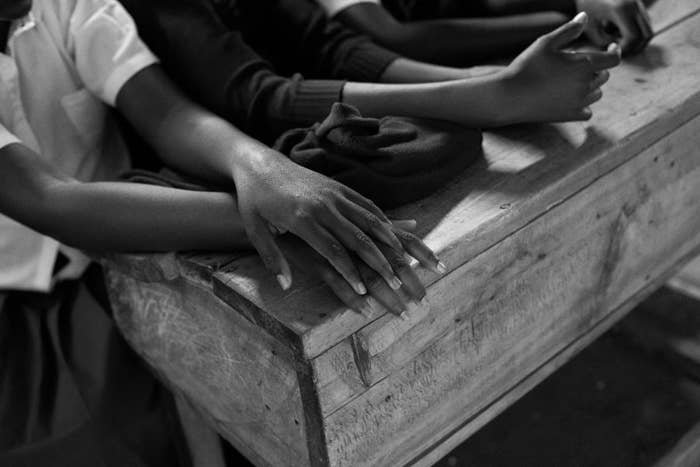Warning: this article contains sensitive material *All names have been changed
Joyce refused to be cut. This is her story.
Joyce, 23, comes from Sook, Kenya.
“I liked going to school and I made good progress with my studies. Then suddenly my dad told me I would have to get married after 8th grade. My mother confirmed it. I was only 14 years old back then.”
Around the same time Joyce’s mother told her and her younger sister to prepare themselves as they would be cut. Often performed as a precursor to marriage, FGM is an ancient tradition that robs young girls of their right to build a future.
“I told my mother, “I refuse.” I also encouraged my younger sister to do the same, but she wanted to obey our parents.”
The escape
Female Genital Mutilation (FGM) is illegal in Kenya.
FGM is a cultural tradition that is believed to guarantee a good marriage and future. Despite being illegal, many parents and daughters follow this ancient belief unaware of the harmful risks.
“My mother wanted to know why I refused. I asked her, “Please wait until I at least get the results from my final school exams.” She was furious. I was afraid. I had to run away to my aunt and asked her to help me,” says Joyce.
Many girls do not have an aunt to turn to. Joyce’s aunt hid her in the bushes by day and in the evening she slept in her aunt’s shelter.
They searched for help explaining that, “We were able to meet a World Vision staff member who arranged a place for me to stay in a nearby school. I received a mattress and basic supplies.”
Abandonment
With assistance from World Vision Joyce has continued studying but she has paid a very high price for refusing her parents and the cultural practice.
She misses her family and would like to return home.
Despite conversations facilitated by World Vision staff Joyce's mother has refused for her to return to her home. She is allowed an occasional visit. “The family meetings are supervised by one of our staff, because there is still risk that the family would cut her,” explains Ken, a World Vision staff member.
Joyce hopes that one day in the future she may live with her family again. It won’t be easy, Joyce’s actions have now inspired her other little sister who is refusing the ancient custom. Despite the high price Joyce is a change maker, leading by example and empowering other girls to stand up and say ‘no’ to FMG.
Changing culture
In communities where this custom is still practiced World Vision staff work collaboratively with the community, ensuring discussions and workshops are facilitated with community and faith leaders. But education takes time and millions of girls are still forced to go through this harmful tradition each year. Girls like Joyce's other younger sister.
When asked about her decision Joyce answers with a quiet voice.
“She was married off right after she had been cut. She became a mother of a little girl when she was only 14 years old.”
Every year 3 million girls are forced to go through FMG. World Vision fights against FGM by building safe houses for girls, educating about women’s rights and the harms of FGM.





